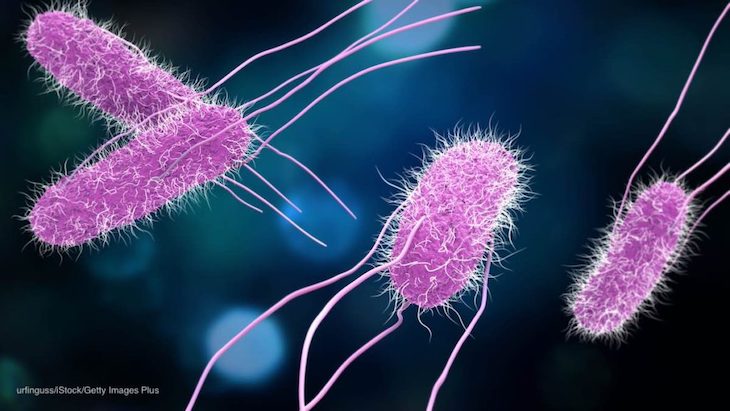Traveling to Mexico? The CDC is warning about a multi-drug resistant Salmonella Newport risk among people who have recently visited that country. Many travelers with these infections have reported eating beef, cheese, including queso fresco and Oaxaca, beef jerky, or dried beef, also known as carne seca, before they got sick.

Multi-drug resistant (MDR) Salmonella are not affected by drugs that are designed to eliminate them, so infections with this type of pathogen can be difficult to treat. Most people with a Salmonella infection suffer from fever, chills, muscle aches, diarrhea that can be bloody, nausea, vomiting, and stomach cramps. These symptoms usually start within six hours to six days after eating food or drinking water contaminated with this pathogen.
When traveling to Mexico, do not eat beef that may be raw or undercooked. Do not eat soft cheese that might be made from raw or unpasteurized milk. And do not eat food prepared by someone who is ill or who has recently been sick.
To protect yourself, follow safe eating, drinking, cooking, and food handling habits to help reduce your chances of getting sick. The foods that are usually the safest to eat include food that is thoroughly cooked and serve hot. Watch out for foods sitting in warming trays at buffets, which can be problematic as it may be contaminated after cooking or may be held at an unsafe temperature. Dry or packaged foods are also usually safe. The in factory-sealed containers are safe as long as they were not opened or handled by another person.
The risky foods include raw foods, such as fresh produce. Rinse them in bottled or disinfected water before eating to reduce (but not eliminate) the risk. Fresh salads can be problematic because bacteria cling to the folds and crenelations in leafy greens and can be difficult to rinse off. Avoid fresh salads or other condiments made from raw fruits or vegetables. And always avoid raw meat and seafood, including ceviche, which is “cooked” (but not really) in lime or lemon juice. That practice does not destroy pathogens.
Street food can be risky, because the vendors may not follow safe food preparation and handling standards. If you choose to eat street food, try something straight off the grill that is very hot.
Do not eat bushmeat, which is local wild game. Bushmeat can include bats, monkeys, and rodents.
For beverages, drink bottled or canned drinks. Make sure that they are unopened and factory-sealed. Some vendors in some countries may sell tap water in bottles that are “sealed” with a drop of glue to look like a factory seal. Carbonated drinks are usually safe since the bubbles indicate the bottle was sealed at the factory.
Hot drinks are usually safe if they are steaming hot. Do not drink raw milk or milk stored in open containers that may have been sitting at room temperature. Unpasteurized beverages and foods are generally considered unsafe.




